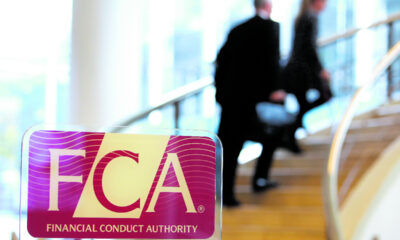Business
FCA Faces Backlash Over Ignored Warning on £200 Million Scheme

The Financial Conduct Authority (FCA) is under scrutiny for allegedly overlooking a warning regarding the investment group 79th Group, which collapsed, leaving thousands of investors with losses exceeding £200 million. A report submitted to the FCA in November 2022 identified 79th Group as a potential Ponzi scheme, yet the organization did not take action prior to the business’s failure, which is now the subject of an investigation by the City of London Police.
Critics have drawn parallels between the FCA’s handling of the 79th Group case and its widely condemned management of the collapse of London Capital & Finance (LCF), which involved a £237 million investment fraud linked to “mini bonds.” In response to a complainant regarding 79th Group, the FCA stated that the case “lies outside our remit” since it “does not regulate mini bonds.”
Regulatory Oversight in Question
The FCA’s response has raised concerns about its effectiveness in overseeing investment schemes. The report about 79th Group included allegations that it was operating as a Ponzi scheme—a fraudulent investment scam that pays returns to earlier investors using the capital from newer investors, rather than from profit earned by the operation of a legitimate business. Despite the serious nature of these claims, the FCA appears to have taken no steps to prevent the eventual collapse of the firm.
Investors involved in the 79th Group have expressed frustration and disappointment with the regulator’s inaction. Many believed their investments were secure, only to find themselves facing significant financial losses. The fallout from the collapse has not only affected individual investors but has also drawn attention to the broader implications for regulatory bodies tasked with protecting the public from financial fraud.
Former officials from the UK’s tax authority, HMRC, have pointed out the need for stronger regulatory frameworks. They argue that more proactive measures are necessary to identify and address potential fraudulent schemes before they can defraud investors.
Calls for Regulatory Reform
As the investigation by the City of London Police unfolds, calls for reform within the FCA have intensified. Critics are urging the government to review the regulatory framework governing investment products, particularly those classified as high-risk, such as mini bonds.
The ongoing situation highlights the challenges faced by regulators in keeping pace with rapidly evolving financial products and fraudulent schemes. Investors and consumer advocacy groups are pushing for greater transparency and accountability from the FCA to prevent similar incidents in the future.
The collapse of 79th Group serves as a stark reminder of the vulnerabilities within the financial investment landscape. As investigations continue, many are left wondering how such a significant warning could go unheeded and what steps will be taken to ensure investor protection moving forward.
-

 World2 days ago
World2 days agoCoronation Street’s Shocking Murder Twist Reveals Family Secrets
-

 Entertainment4 months ago
Entertainment4 months agoKate Garraway Sells £2 Million Home Amid Financial Struggles
-

 Entertainment3 months ago
Entertainment3 months agoAnn Ming Reflects on ITV’s ‘I Fought the Law’ Drama
-

 Health3 months ago
Health3 months agoKatie Price Faces New Health Concerns After Cancer Symptoms Resurface
-

 Entertainment3 weeks ago
Entertainment3 weeks agoCoronation Street Fans React as Todd Faces Heartbreaking Choice
-

 World3 weeks ago
World3 weeks agoBailey Announces Heartbreaking Split from Rebecca After Reunion
-

 Entertainment5 days ago
Entertainment5 days agoTwo Stars Evicted from I’m A Celebrity Just Days Before Finale
-

 World5 days ago
World5 days agoKevin Sinfield Exceeds Fundraising Goal Ahead of Final Marathons
-

 Entertainment3 months ago
Entertainment3 months agoCoronation Street’s Carl Webster Faces Trouble with New Affairs
-

 Entertainment3 months ago
Entertainment3 months agoWhere is Tinder Swindler Simon Leviev? Latest Updates Revealed
-

 Entertainment4 months ago
Entertainment4 months agoMarkiplier Addresses AI Controversy During Livestream Response
-

 Science2 months ago
Science2 months agoBrian Cox Addresses Claims of Alien Probe in 3I/ATLAS Discovery













